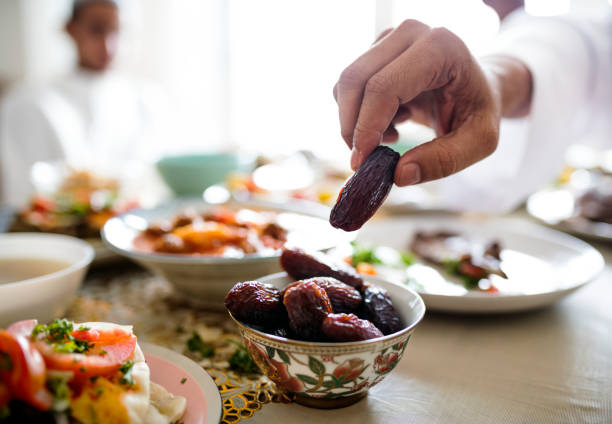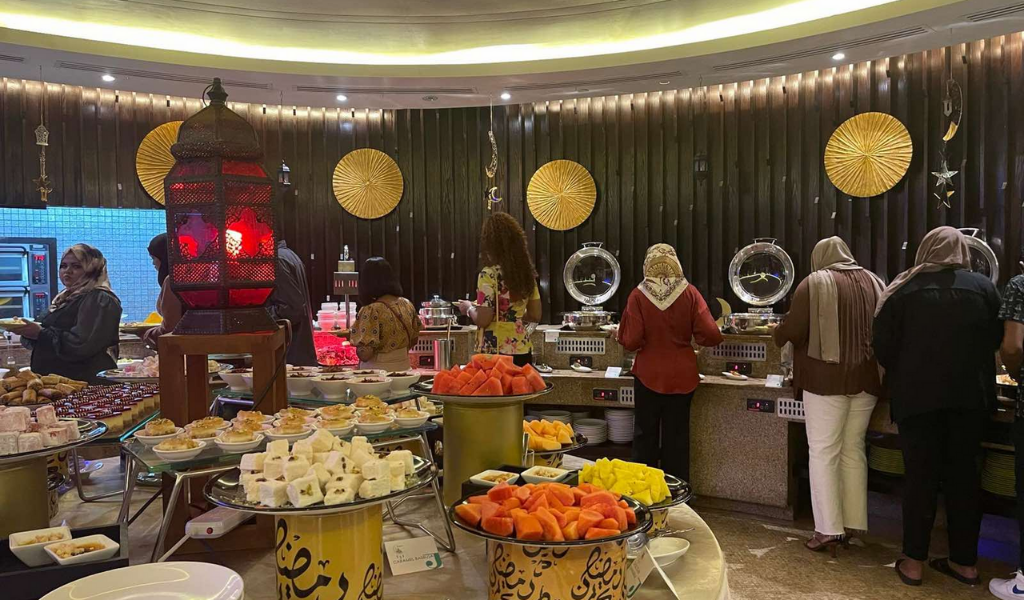As Muslims around the world observe the sacred month of Ramadan in 2024, fasting from dawn to sunset presents both spiritual reflection and physical challenges. However, with careful planning and attention to nutrition, fasting can be an opportunity to cultivate healthy dieting habits that nourish the body and support overall well-being. Here are some tips for healthy eating tips for those fasting in the holy month of Ramadan.

Suhoor: The Pre-Dawn Meal
Suhoor, the pre-dawn meal before the fast begins, plays a crucial role in providing sustained energy throughout the day. It is good to opt for complex carbohydrates such as whole grains, oats, and brown rice, which release energy slowly, keeping you feeling fuller for longer. Incorporate protein sources like eggs, yogurt, and lean meats to support muscle health and prevent muscle breakdown during fasting hours. Don’t forget to hydrate adequately with water and hydrating foods like fruits and vegetables to prevent dehydration during the day.

Balanced Iftar Meals
Breaking the fast at sunset, known as Iftar, is an occasion to replenish nutrients and rehydrate the body after a day of fasting. Begin with dates and water to replenish blood sugar levels and hydrate the body. Follow with a balanced meal comprising lean proteins, complex carbohydrates, healthy fats, and a variety of vegetables. Try to select grilled or baked proteins like chicken, fish, or lentils, paired with whole grains such as quinoa or whole wheat bread. Incorporate healthy fats from sources like olive oil, avocados, and nuts to support satiety and brain health.
Portion Control and Mindful Eating
While it may be tempting to overindulge during Iftar and Suhoor, practicing portion control and mindful eating is key to maintaining a balanced diet during Ramadan. Be mindful of portion sizes and listen to your body’s hunger and fullness cues. Avoid rushing through meals and take time to savor each bite, chewing slowly and mindfully. This not only aids digestion but also allows you to enjoy the flavors and textures of your food more fully.
Nutrient-Dense Snacking
In between Suhoor and Iftar, it’s essential to maintain energy levels with nutrient-dense snacks that provide sustained fuel without weighing you down. Choose fresh fruits, nuts, seeds, and yogurt to satisfy hunger and replenish vital nutrients. Avoid sugary and processed snacks, which can lead to energy crashes and cravings later on.

Hydration is Key
Ensuring adequate hydration is essential during Ramadan, especially when fasting for long hours. Aim to drink plenty of water between Iftar and Suhoor to prevent dehydration and maintain optimal bodily functions. Avoid caffeinated and sugary beverages, which can contribute to dehydration and disrupt sleep patterns.
Prioritize Healthy Dieting Habits in Ramadan
With mindful planning and attention to nutrition, fasting during Ramadan can be an opportunity to cultivate healthy dieting habits that support overall health and well-being. By prioritizing nutrient-dense foods, practicing portion control, and staying hydrated, you can make the most of this sacred month while nourishing your body and soul.



